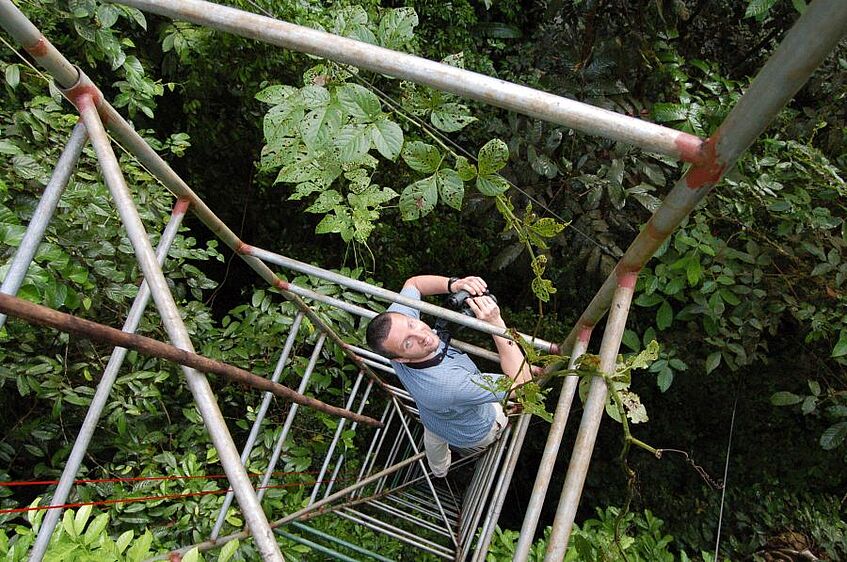Conservation Biology and Biodiversity Management (Master)

The master's programme in Conservation Biology and Biodiversity Management aims at educating qualified experts in conservation biology working in public administration, nature reserve management (both on a national and international level), test procedures (e.g. nature impact assessments according to EU directives), and eco-friendly planning and consulting. Graduates of this master's programme are experts in managing biological diversity in a national, European and international context, taking a problem-oriented approach. They are familiar with the relevant protected natural resources (from species to habitats and landscape), which are either specifically defined by national or international law, or are generally endangered.
Master of Science
Degree Programme Code: 066 879
4 semesters / 120 ECTS credits
Language: German
NO entrance examination
Facts & Figures
- Students: n.a.
- Graduates in the last academic year: n.a.
- Number of semesters needed for graduation (median): n.a.
Data updated on: 03.12.2024
Attention
Instruction Language German
Please note that the instruction language of this programme is German. To start the degree programme, you need to hold a certificate of German proficiency on C1 level.
Admission Procedure
Information about the admission procedure
Information on Previous Studies:
In any case eligible degree programmes at the University of Vienna:
Getting started
Study Programme
The degree programme consists of the following compulsory modules:
- MNB1 Principles of Conservation Biology and Biodiversity Management/ 15 ECTS
- MNB2 Quantitative Methods in Conservation Biology and Biodiversity Management / 15 ECTS
- MNB3 Biodiversity, Taxonomy, Knowledge of Species / 15 ECTS
- MNB4 Principles of Related Scientific Disciplines / 15 ECTS
- MNB5 Applied Nature Conservation / 15 ECTS
- MNB6 Individual Specialisation / 15 ECTS
Five Concepts
which you will deal with during your studies:
- Restoration
- Diversity
- Ecology
- Ex-situ conservation
- Bioindication
...and many more.
Overview of the programme structure & topics
Here you find the current offer of courses for this programme to gain better insight into the topics and structure. For more information please click on the respective level.
After Graduation
Graduates can pursue a career in the following occupational fields:
- public administration (state and federal offices, ministries), and ecological consulting for various corporate bodies, communities and associations
- supervision, monitoring and management of protected areas (protected areas according to federal state laws and EU NATURA 2000 sites, as well as international protected areas, such as national parks, biosphere reserves, Ramsar sites, and World Natural Heritage sites)
- supervision and implementation of wildlife conservation programmes, as well as population monitoring of endangered species (especially priority species according to the Habitats Directive)
- management of ecological development programmes, strategic EIAs, transnational environmental planning
- research sector (higher education institutions, departments, universities of applied science, and other teaching and research institutions related to ecology and environmental topics)
- NGOs as competent “campaigners”, consultants and heads of working groups or institutions
- consulting in and of companies in the private sector (planning offices, scientific research institutions)
- national, European and international institutions and organisations (European Environment Agency, IUCN, UNEP, UNESCO)
- agriculture and forestry, working on questions relating to conservation biology and biodiversity.
Graduates' Perspective on the Degree Programme
Graduates ...
- say that this degree programme receives the grade: 1.9 (good)
- rate the level of difficulty as: 3.3 (appropriate)
→ These results are based on feedback from 20 graduates.
*You can find further assessments of the degree programme from its graduates’ perspective in the graduate survey of the master's programme in Conservation Biology and Biodiversity Management (in German).
Graduates ...
- find employment within 3 months after graduation on average.
- earn an average of € 2,951 (women) and € 3,262 (men) gross per month within three years after graduation.
- work full time at a percentage of 69% (women) and 60% (men) within three years after graduation.
*You can find further information on career entry and career paths in the tracking of graduates "MA Biology".
